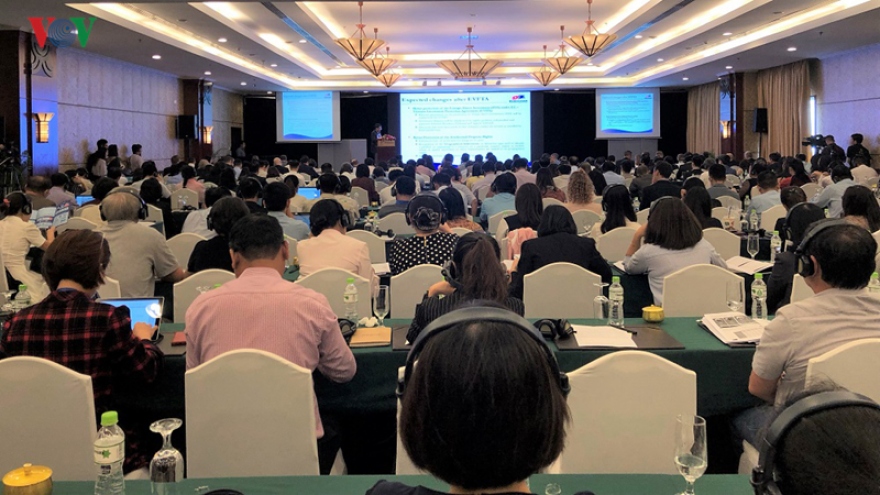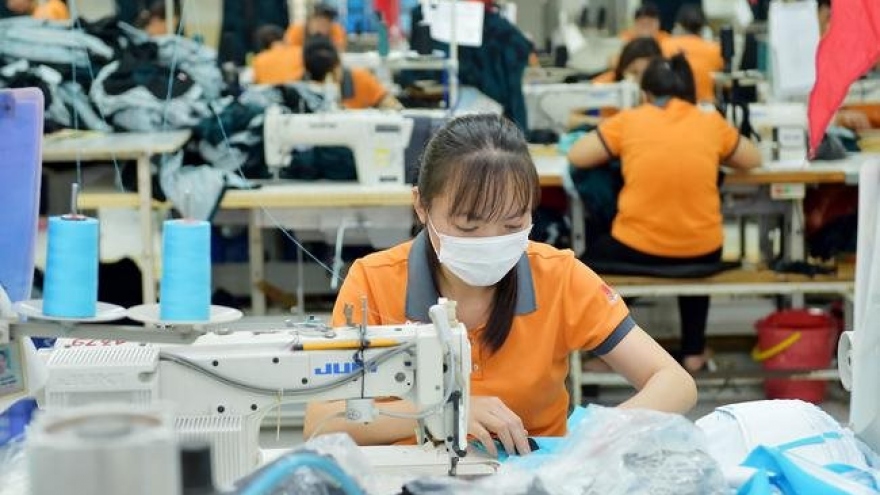SMEs face hurdles when seeking to join global supply chain
VOV.VN - Vietnamese small and medium-sized enterprises must overcome such inadequacies as outdated technologies, a lack of experience in working with foreign businesses and high-skilled workers, and poor management in order to engage in the global supply chain, according to insiders.
 |
| (Photo: Vneconomy) |
According to Prof. Dr. Nguyen Mai, Vietnam is widely considered to be the world’s fastest growing economy, particularly when studying the figures over the past two decades.
Several major investors and businesses from other nations across the globe have arrived in Vietnam to seek cooperation opportunities. As of August 20, 2019, the country’s foreign direct investment (FDI) performance stood at an estimated US$11.96 billion, up 6.3 per cent against the same period last year, thus opening a wealth of cooperation opportunities for domestic businesses seeking closer ties with their counterparts..
Despite this, it is not a simple task for Vietnamese businesses, especially small and medium-sized enterprises (SMEs), to meet the standards and requirements necessary to join the global supply chain of foreign firms.
According to the Vietnam Association of Small and Medium Enterprises, SMEs now make up 98 per cent of enterprises but contribute only 40 per cent to GDP, while just one-quarter of SMEs participate in the global supply chain.
A study conducted by the International Finance Corporation has pointed out that only 20 per cent of SMEs have joined the global supply chain, much lower than the figure seen in other nations throughout the region.
The number of local businesses joining the supply chain of FDI firms remains limited, especially in the fields of high levels of technology such as in automobile production and electronics.
During a recent workshop aimed at strengthening connectivity among SMEs in order for them to get involved in the global supply chain, Ron Ashkin, director of USAID LinkSME, noted that there are a number of reasons for the low localization rate in Vietnam.
Factors include outdated technologies, low productivity, a lack of experience in working with foreign businesses, in addition to a lack of high-skilled workers, poor management, limitations in foreign language proficiency, struggles to access financial sources, and low reliability.
Most notably, Vietnamese businesses still lack management tools such as a standard quality-control system, and problem-solving skills.
Most small enterprises have revealed shortcomings in meeting international safety standards despite buyers showing a keen interest in firms that can adhere to these standards.
In order to join the global supply chain, domestic enterprises must overcome these inadequacies and better meet the requirements set by foreign firms.
As a representative for a group operating in Vietnam with the aim of supporting and improving domestic businesses' capacity to engage in the global value chain, Mr Ashkin said when seeking suppliers, global companies need to be clear on what total production costs are, including the cost of labour, materials, the use of capital, transport, taxes, and other fees.
Aside from the cost of labour, the nation’s underdeveloped supply chain will increase the costs of businesses, he noted.
Ashkin emphasised that the country is currently a popular investment destination due to its low costs in comparison to China. Despite this, the LinkSME representative laid stress on the importance of other issues.
International companies seek for suppliers which could meet such standards as quality, technology, costs, feedback and reliability. Apart from these, traits such as trustworthiness, reliability, respect, mutual care, team working, co-operation, and regular communication, are also important for trans-national businesses when seeking suppliers.
The LinkSME representative said it might take at least three to five years for buyers to assess bidding documents, adding that Vietnamese businesses should make thorough preparations for these challenges.
Particularly, in situations when suppliers are selected to sign co-operative contracts, their efficiency is generally assessed regularly.
Delivery commitments also represent another important criteria for suppliers as any late deliveries cause challenges for the production procedures of buyers.
Furthermore, suppliers should pay close attention to a short-term and long-term goals of production strategy to better meet requirements of buyers in the future.


